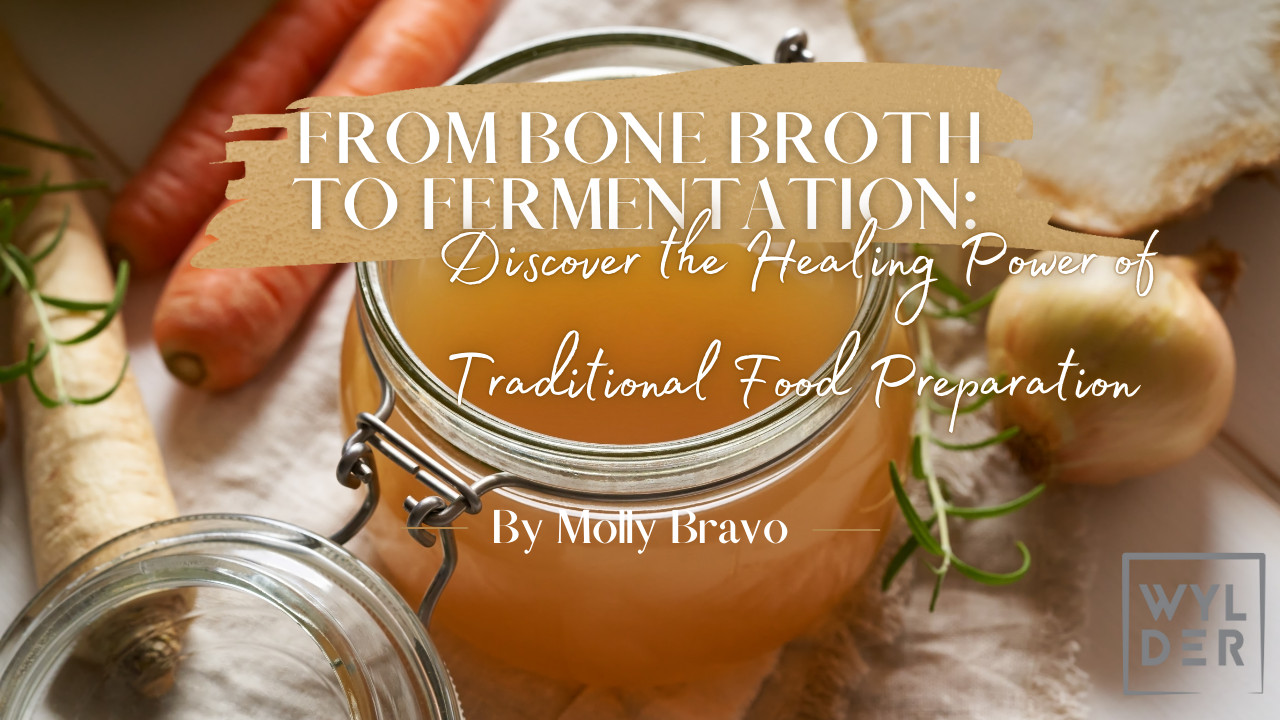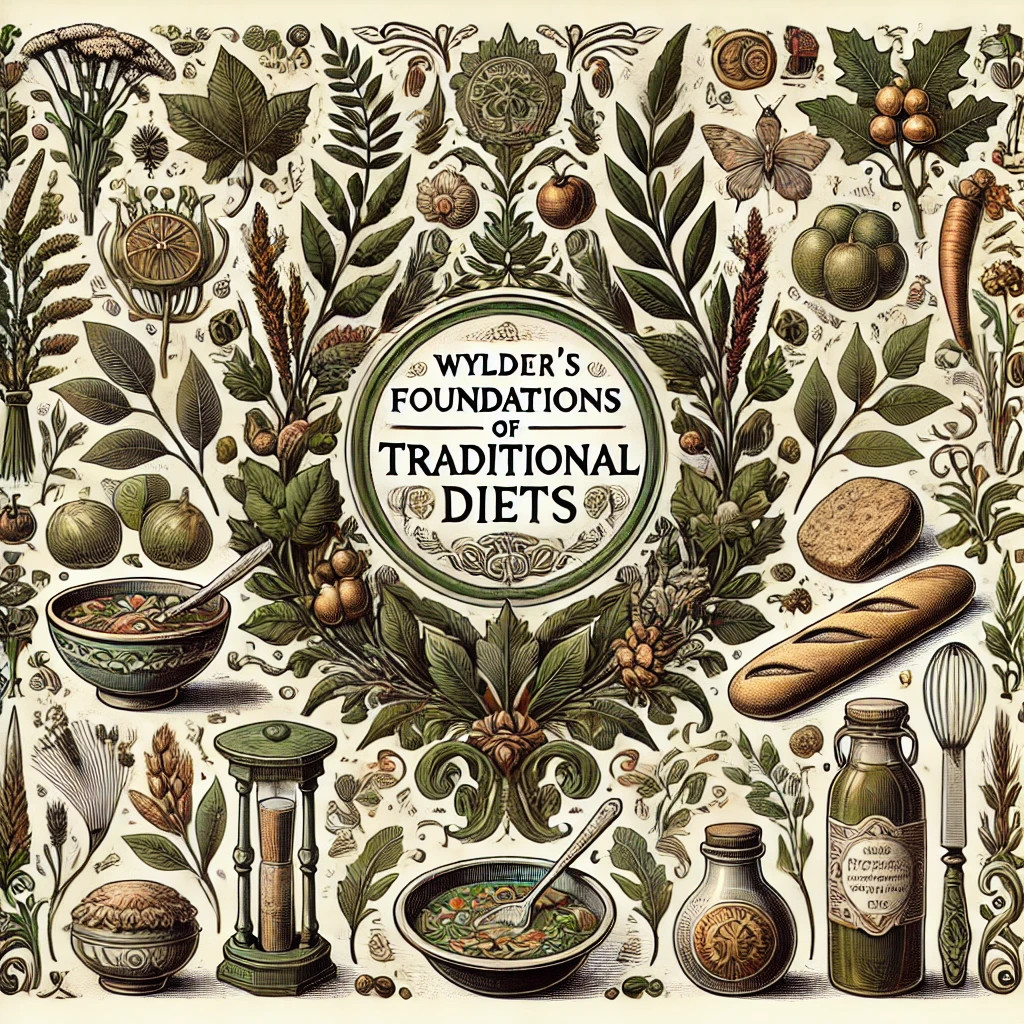
In today's fast-paced world, convenience often trumps quality, especially when it comes to food. Many of us have lost touch with the traditional ways of eating that once nourished our ancestors.
Enter the Nourishing Traditions movement—a return to the roots of wholesome, nutrient-dense eating that promises to reconnect us to our food heritage. This blog post will explore the philosophy behind Nourishing Traditions and how it can transform your approach to food and health.
The Core Philosophy of Nourishing Traditions
Nourishing Traditions is more than just a diet; it's a way of life centered around nutrient-dense, whole foods. At its core, this philosophy emphasizes the importance of consuming foods as close to their natural state as possible. By avoiding processed foods and focusing on whole ingredients like raw dairy, organ meats, and fresh vegetables, we nourish our bodies with the nutrients they need to thrive. This approach not only benefits our health but also supports sustainable eating habits that are kinder to the planet.
Traditional food practices are deeply rooted in health and sustainability. They draw on the wisdom of our ancestors, who understood the value of foods grown and prepared with care. This philosophy encourages us to slow down and savor the process of cooking and eating, fostering a deeper connection to the food we consume.
Key Components of Traditional Diets
Unrefined and Unprocessed Foods
One of the cornerstones of traditional diets is the emphasis on unrefined and unprocessed foods. These are the building blocks of true nourishment. Raw dairy, organ meats, and fresh vegetables are celebrated for their nutritional value. Unlike their heavily processed counterparts, these foods retain their natural vitamins and minerals, providing a wealth of health benefits.
For instance, raw dairy offers a rich source of calcium and probiotics, supporting bone health and digestion. Organ meats are packed with essential nutrients like iron and vitamin B12, vital for energy and well-being. By incorporating these whole foods into your diet, you can experience the vitality and balance that come from authentic nourishment.
Traditional Preparation Techniques
Traditional diets also rely on time-honored preparation techniques that enhance the nutritional value of foods. Methods like fermentation, sprouting, and soaking improve nutrient absorption and digestion.
Fermentation for example, transforms ordinary cabbage into probiotic-rich sauerkraut, supporting gut health and immune function.
Sprouting grains reduces anti-nutrients, making them easier to digest and increasing their bioavailability.
Similarly, soaking nuts and seeds unlocks their full nutritional potential, providing you with a boost of energy and vitality. These techniques have been passed down through generations, offering a simple yet powerful way to maximize the benefits of your food.
The Role of Healthy Fats
Saturated Fats in Traditional Diets
Contrary to modern low-fat diet trends, traditional diets celebrate the role of healthy fats, particularly saturated fats. Foods like grass-fed butter, tallow and coconut oil are staples in these diets, offering a range of health benefits. Saturated fats are essential for brain function, hormone balance, and overall well-being.
Grass-fed butter, for instance, is rich in fat-soluble vitamins like A, D, E, and K2, which support bone health and immunity. Tallow, derived from grass-fed animals, provides a stable source of energy and supports skin health. Coconut oil, with its medium-chain triglycerides, offers quick energy and enhances brain function. Incorporating these fats into your diet can promote lasting health and vitality.
Modern Low-Fat Diet Trends
In contrast, modern low-fat diets often rely on processed oils and artificial substitutes that lack the nutritional benefits of traditional fats. These diets can lead to deficiencies in essential nutrients and energy imbalances. By returning to the art of traditional cooking techniques, you can enjoy the rich flavors and nourishing qualities of healthy fats while supporting your body's natural functions.
The Power of Fermented Foods
Benefits of Fermented Foods
Fermented foods are a powerhouse of nutrition, offering a wide range of benefits for your health. Incorporating foods like sauerkraut, kefir, and yogurt into your diet can support gut health, digestion, and immunity. These foods are rich in beneficial probiotics, which help maintain a healthy balance of bacteria in your gut.
Probiotics play a crucial role in supporting digestion and nutrient absorption. They also strengthen your immune system, helping you stay resilient against infections and illnesses. By including fermented foods in your meals, you can enjoy improved digestion, enhanced immunity, and overall well-being.
Probiotics and Gut Health
The connection between probiotics and gut health is well-established. A healthy gut is essential for optimal digestion, nutrient absorption, and immune function. Fermented foods provide a natural source of probiotics, promoting a balanced gut microbiome and supporting your body's natural defenses.
Incorporating fermented foods into your diet is a simple yet effective way to nourish your gut and enhance your overall health. Whether you enjoy the tangy flavor of sauerkraut or the creamy texture of kefir, these foods offer a delicious way to support your well-being.
Slow Cooking and Bone Broths
Importance of Slow Cooking
Slow cooking is a time-honored technique that allows you to extract maximum nutrients from your food. By simmering ingredients over low heat, you preserve their natural flavors and nutrients, resulting in rich, flavorful dishes.
Slow-cooked meals are not only delicious but also easy to prepare. With minimal effort, you can create nourishing stews, soups, and casseroles that warm your soul and satisfy your appetite. This method of cooking aligns with the principles of Nourishing Traditions, emphasizing the importance of savoring each meal and enjoying the process of preparing food with care.
Benefits of Bone Broths
Bone broths are a staple in traditional diets, offering a wealth of health benefits. These nutrient-rich broths are made by simmering bones with vegetables, herbs, and spices, creating a flavorful and nourishing base for soups and stews. They are rich in collagen, gelatin, and minerals that support joint health, gut integrity, and skin elasticity.
Incorporating bone broths into your diet can promote joint health, improve digestion, and enhance skin elasticity. Whether enjoyed on their own or used as a base for soups and stews, bone broths offer a delicious way to nourish your body from the inside out.
Conclusion
The Nourishing Traditions movement invites you to reconnect with the wisdom of traditional diets and food practices. By embracing nutrient-dense foods, traditional preparation techniques, and healthy fats, you can nourish your body, mind, and spirit. This approach not only supports your health but also promotes sustainability and a deeper connection to the food you eat.
Join the movement for sustainable eating with our exclusive course, launching December 2, 2024. Early bird rates are available now at WylderSpace.
Rediscover the joy of cooking and nourish your body with the time-honored practices of Nourishing Traditions. Enroll today and start your journey to better health and well-being through traditional cooking methods.















0 Comments